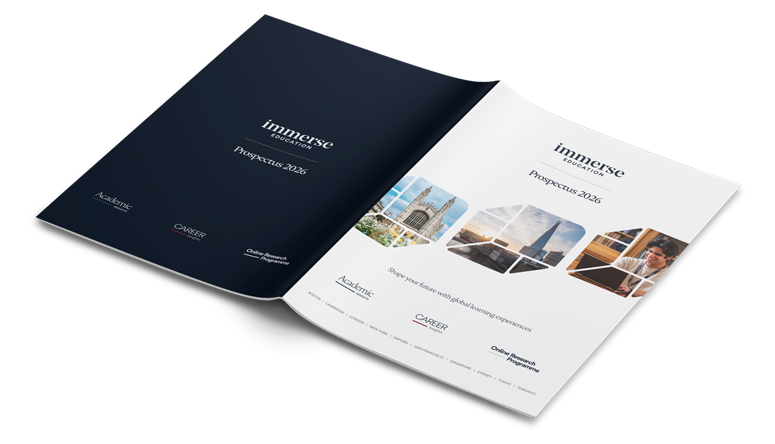Ranked as the world’s top 40 university by QS World University Rankings, the University of Queensland is a destination for ambitious students who want to study in a globally recognised, research-intensive environment.
Admission isn’t only about strong grades – it’s about aligning your subjects, understanding UQ’s multiple entry pathways, and preparing clear evidence of readiness.
In this guide, you’ll learn how to plan strategically, use accredited online courses for college credit, and present your proof.
Here’s a step-by-step guide on how to get into the University of Queensland.
Why Choose the University of Queensland?
The University of Queensland (UQ) is one of the world’s most prestigious universities, renowned for its research strength, teaching excellence, and international impact.
In the 2025 QS World University Rankings, UQ secured the #40 position globally, confirming its status as a top destination for ambitious students. At a subject level, twenty UQ disciplines are ranked in the world’s top 50, reflecting both breadth and depth of expertise.
With this global standing comes selectivity. For students wondering how to get into the University of Queensland, it’s important to understand that many programmes have precise subject prerequisites and require applicants to demonstrate clear alignment with course expectations.
Strong grades alone aren’t enough; you’ll also need to show evidence of readiness through subject choices, projects, or bridging study.
UQ, however, recognises that talent takes different forms. That’s why it offers multiple pathways into study: direct entry from secondary school, carefully designed foundation programmes, or recognition of prior learning through university-level or accredited online courses.
Each route provides a structured way to demonstrate preparedness and prove that you’ll thrive in UQ’s academic environment.
This combination of world-leading reputation, rigorous standards, and flexible entry pathways makes UQ an inspiring yet accessible choice.
If you’re ready to plan strategically and gather the right evidence, UQ offers the chance to begin your journey at one of the best universities in the world.
How UQ Evaluates Applications
When you apply to UQ, admissions officers assess several key signals. Each faculty sets its own benchmarks, so it’s important to confirm the exact requirements for your intended programme early in the process.
- Academic Results:
Most UQ degrees require ATAR 75–84 (IB 26–30). Competitive courses need more: medicine ATAR 90 (IB 33), dentistry and veterinary science also rank highly. Meeting minimums doesn’t guarantee entry. - Subject Prerequisites:
Engineering needs Maths Methods + Physics/Chemistry. Biomedical sciences need Chemistry + Biology/Physics. Medicine assumes Chemistry + Biology/Maths, plus English. Missing subjects can be met through bridging courses. - Additional Assessments:
Medicine, dentistry, and oral health require UCAT ANZ + MMIs (weighting: 40% academics, 20% UCAT, 40% interview). Creative degrees may need portfolios; education, literacy or aptitude tests. - English Proficiency:
Minimum IELTS 6.5 (no band <6.0), TOEFL iBT 87, or PTE 64. Higher scores for some programmes. UQ’s PEP course offers direct entry if needed.
Subject Planning for a UQ Course Fit
To strengthen your application, you’ll need to show that your subjects prepare you for the academic challenges ahead.
Choose subjects aligned with your degree
If you’re aiming for medicine or biomedical science, you’ll need Chemistry plus Biology or Mathematical Methods. For engineering, UQ requires Mathematical Methods and either Physics or Chemistry.
Economics, actuarial studies, and quantitative business programmes expect advanced mathematics, while humanities and law place more emphasis on English and essay-based subjects.
Choosing these subjects shows UQ you understand and are prepared for the discipline-specific workload.
Keep your results consistent
UQ doesn’t just check whether prerequisites are ticked off – they evaluate how strongly you performed.
A Band 5–6 in IB Biology or Chemistry, or high A-level results in Mathematics, tells admissions you’re capable of handling first-year core courses.
Even small grade drops in prerequisite subjects can affect competitiveness in selective programmes, so sustained performance across senior years is essential.
Close prerequisite gaps early
If you realise you’re missing a required subject, UQ provides clear routes to catch up.
You can take approved bridging courses in mathematics, chemistry, biology, or physics offered online or intensively before enrolment. International students may also complete a foundation year or an extension study module recognised by UQ.
Completing these well before deadlines demonstrates foresight and ensures your application won’t be blocked at the admissions stage.
Join the Immerse Education 2025 Essay Competition
Follow the instructions to write and submit your best essay for a chance to be awarded a 100% scholarship.

Mapping Your UQ Pathway
There’s no one-size-fits-all route to UQ – your ideal path depends on your background, strengths, and readiness.
Below are the main entry options, how they work, and how you should document everything to make your case clear and compelling.
1. Traditional Entry
This is the most direct route: you complete senior secondary studies (e.g. your national high school certificate, A-Levels, IB) and achieve a selection rank (e.g. ATAR or its equivalent) that meets UQ’s thresholds. If your scores are high enough and you’ve met all subject prerequisites, UQ may offer you direct admission.
However, many applicants don’t meet every requirement immediately – that’s okay if you plan from the start to build readiness through other routes.
2. Foundation Pathways via UQ College
UQ uses UQ College as its exclusive pathway provider. The Foundation Program is designed to help students who don’t yet meet degree entry requirements (especially international students) gain the academic knowledge and English ability needed.
Key features:
- You’ll study five courses (two core, three electives) that map to your intended undergraduate degree’s prerequisites.
- It’s offered in Standard (~10 months) or Accelerated (~4 months) formats, depending on your academic and English proficiency.
- Elective choice allows you to tailor subject coverage (e.g. include chemistry, physics) so you meet UQ’s prerequisites.
- On successful completion (meeting required grades/GPAs), you are eligible for a conditional offer into your target UQ degree.
This route is especially useful if your high school results or English skills aren’t yet sufficient – it gives you a clear, tailored bridge into UQ.
3. Recognised Prior Learning (RPL) & Credit or Exemption
If you’ve already done formal study (such as at another university, TAFE, or via accredited online courses for college credit), UQ may recognise that learning through Recognition of Prior Learning (RPL) under its official policy.
Under UQ’s Recognition of Prior Learning Policy:
- Prior learning may be used to satisfy admission requirements (i.e. replicate prerequisite subjects) and/or grant credit or exemption in your programme.
- To grant credit or equivalence, your prior study must be valid, current, and demonstrably equivalent in content, level, and learning outcomes.
- UQ applies limits on how much credit can be granted (for undergraduate coursework, generally no more than one-third of total units required) to maintain the integrity of the degree.
- If credit or exemption is awarded, it’s either specified credit (for exact course equivalence) or unspecified credit (for electives).
- You must apply for credit or exemption usually before enrolment or early in enrolment, depending on faculty guidelines.
- Credit awarded may be rescinded if based on inaccurate or incomplete information.
Using Accredited Online Courses for College Credit
Online accredited college courses can be a smart way to strengthen your UQ application – if you use them carefully.
UQ considers prior study under its Recognition of Prior Learning (RPL) policy, and relevant, accredited college courses online can count towards prerequisites or even grant credit once enrolled.
The key is to choose courses that map directly to your degree and keep complete records to support your case.
When selecting online courses:
- Choose alignment, not convenience. Opt for courses that overlap with UQ prerequisites or core first-year subjects. For example, online Statistics or Calculus supports economics or psychology applications, while Organic Chemistry aligns with biomedical or life sciences.
- Keep comprehensive documentation. UQ requires official transcripts, full syllabi, assessment details, contact hours, and grading schemes. If your course appears in UQ’s Credit Precedents Database, reference that in your application to improve your chances.
- Understand credit limits. UQ generally allows credit for up to one-third of an undergraduate programme’s units. Credit is not awarded for failed courses, and study older than ten years may be rejected. Applications must usually be lodged before or early in enrolment.
- Show initiative. Going beyond your school’s curriculum with rigorous, accredited courses demonstrates academic curiosity and independence. Admissions officers see this as proof that you are actively preparing for university-level challenges.
At Immerse Education, we offer a range of pre-college online courses designed to strengthen your academic profile and give your UQ application a competitive edge.
Building a Compact Evidence Portfolio
Admissions officers value concise proof of your abilities. Instead of overwhelming them with every certificate, build a compact portfolio that includes:
- Two signature projects or outcomes. For example, a science research project or a policy essay that mirrors the skills required in your chosen UQ course.
- Clear documentation. Record your role, actions, and outcomes, backed up with simple metrics (e.g., “increased debate team participation by 30%”).
- One takeaway per project. Keep it sharp and relevant: how does this experience prove you’re ready for your target degree?
Scholarships and Financial Readiness
Studying at the University of Queensland is a major investment, and planning for scholarships early will strengthen both your application and financial readiness.
UQ awards more than AU $16 million annually across 1,700 scholarships, covering academic merit, equity, leadership, and faculty-specific support.
For high-achieving applicants, the UQ International Excellence Scholarship offers a 25% tuition reduction, while the Vice-Chancellor’s Scholarship provides AU $12,000 per year. The UQ Excellence Scholarship awards AU $6,000 annually for outstanding academic and leadership results.
Students facing educational or financial disadvantage can apply for the Queensland Commitment Scholarship, worth AU $7,000 per year.
Postgraduate researchers may also benefit from the Fellowship Support Scheme Scholarships, which include tuition coverage and a stipend of about AU $36,400 per year.
Because many of these scholarships require extra essays or supporting documents, identify them early and track deadlines alongside your main application.
Where possible, link your portfolio of achievements – such as leadership or community impact – directly to scholarship criteria.
Bringing It All Together: Your UQ Narrative
When you’re ready to apply, bring your application together into a single narrative. For instance:
- You chose senior biology and chemistry to prepare for UQ’s Bachelor of Biomedical Science.
- You completed an accredited online course in human anatomy for college credit, which UQ recognises as strengthening your preparation.
- You highlighted two projects – a lab investigation and a community health outreach initiative – as signature proof of readiness.
- You mapped your path clearly, from subject choice to scholarship deadlines.
By tying every element back to your intended UQ degree, you show not just eligibility but a confident statement of fit.
Final Thoughts
Now that you know how to get into the University of Queensland, make sure to prepare strategically.
Choose senior subjects that meet prerequisites, fill any gaps early with bridging study, and use college accredited online courses or online accredited college courses to strengthen your profile where recognition applies.
And if you are looking to spice up your college application, look no further than Immerse Education.
At Immerse Education, we specialise in helping ambitious participants like you explore subject pathways and prepare for world-leading universities.
Explore our Sydney summer school or browse our online research programmes to take the next step with confidence.



















